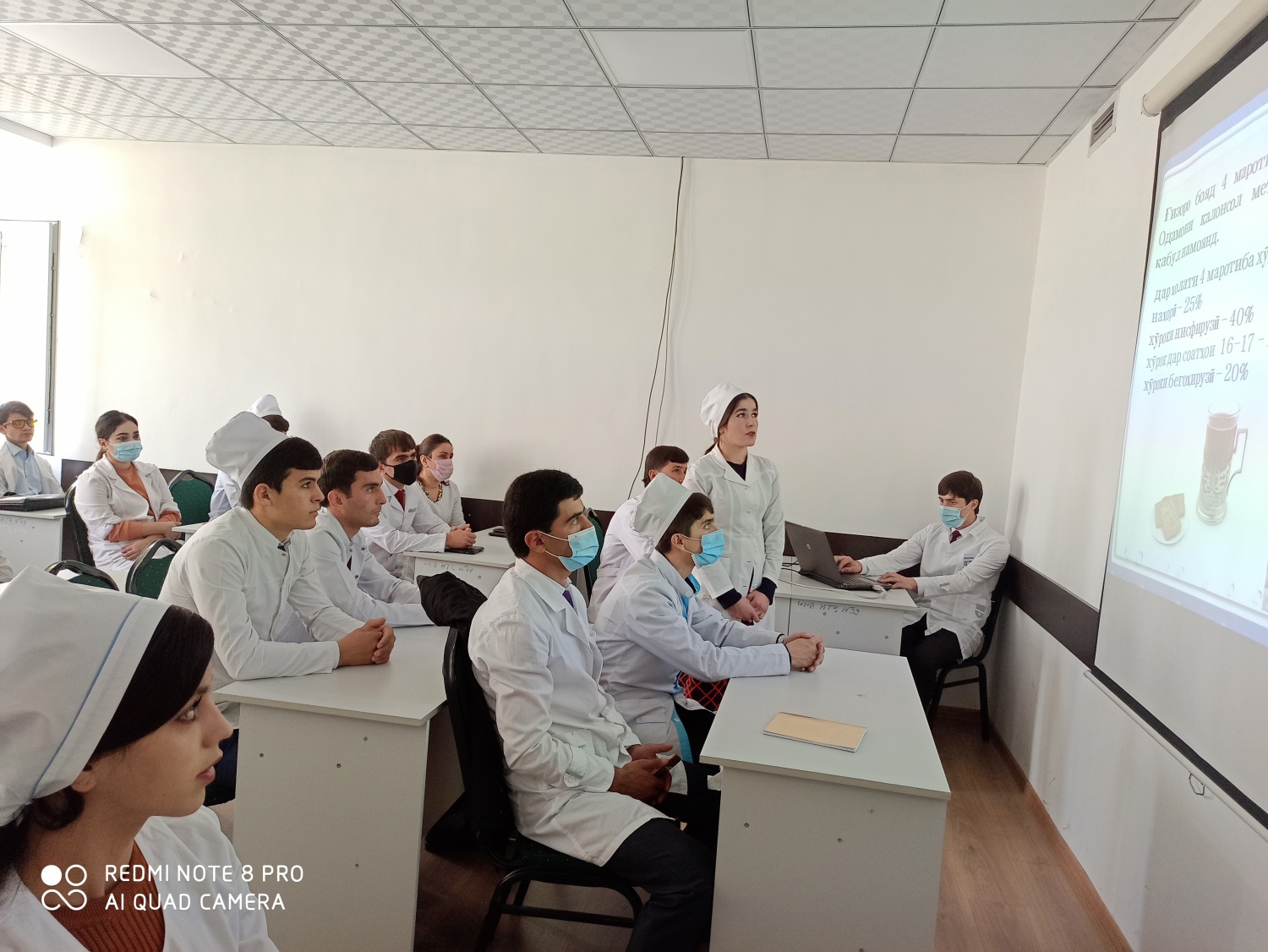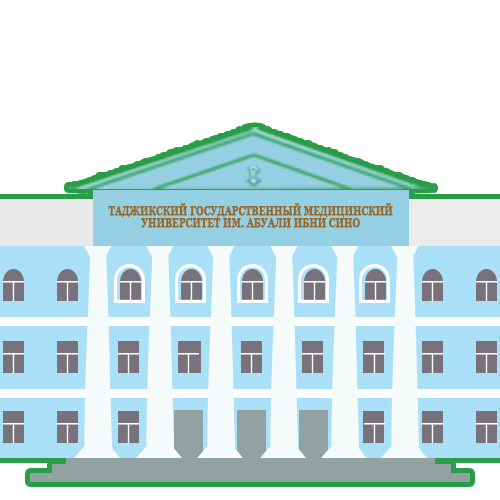Healthy lifestyle promotion, including HIV prevention
The concept of "healthy lifestyle" includes such aspects as: socio-psychological behavior of a person, hygienic fundamentals, social activity of a person, rational work and leisure, proper organization of leisure, personal hygiene, use of the healing forces of nature (sun, air, water), proper nutrition, mental health in the family, work and educational activities. All of them are interconnected and are factors of a healthy lifestyle.
In this regard the seminar on the topic: "Promotion of a healthy lifestyle, including the prevention of HIV infection" was held at the Department of Public Health and Medical Statistics with a course in the History of Medicine on October 22, 2020. The seminar was attended by: 2nd year students of curatorial groups of 1,2 of the medical and preventive faculty, the Head of the department Juraeva N.S., curator of groups Sharifzoda F.J., as well as the entire teaching staff of the department: Komilov I.Sh., Komilova G.I., Makhmudova D.Sh., Nuriddinova N.N. ., Isroilova Z.S. Curators: Saidova S.N., Yusufzoda P.A., Mamadaminov O.N.
The curator of the 2nd group Sharifzoda F.J. in her speech noted that everyone, in particular we, as doctors, should promote a healthy lifestyle including prevention of HIV infection. It was told about a healthy lifestyle, as well as about the history of the origin and transmission routes of HIV infection.
In the early 80s of the 20th century, medical science developed rapidly and in the fight against dangerous microbes discovered a new dangerous infection called the human immunodeficiency virus (HIV), which has a fatal effect on human health. According to statistics, more than 40 million people in the world are infected with this disease. Globally, this is a significant figure. Decisions must be taken to prevent the spread of this deadly disease. Medical scientists have concluded that humans are themselves responsible for the rapid spread of HIV infection. That is, ignorance, promiscuity and irresponsibility to their health, often lead to the transmission of the human immunodeficiency virus.
Since its discovery, the human immunodeficiency virus has spread around the world within a short period of time. The first case of the disease was registered in Tajikistan in 1991, and today there is no country or society in which there are no people who are not infected with the human immunodeficiency virus. And although the human immunodeficiency virus appeared in Tajikistan not so long ago, the disease, like the plague, in a short time has already claimed the lives of dozens and infected more than a hundred people.
Gulnozi Hikmatullo, 2nd year student of group 2, made a presentation on the topic "Human immunodeficiency virus and its symptoms"
Human immunodeficiency virus (HIV) infection is one of the most important and pressing problems of our time. Its negative impact has damaged not only the health sector, but also the economy and society around the world. The epidemiological situation with HIV in our country is assessed by international experts as a "cumulative epidemic" that is observed among certain groups of drug addicts, persons providing sexual services, labor migrants and their families.
The first signs of HIV infection can appear in the first months after infection and have symptoms like the flu or a cold. This period is called the “acute phase” of the disease. After that, many years (8-15 years) are asymptomatic. After this, the period of manifestation of symptoms begins, these symptoms vary depending on the level of immunity and the specific characteristics of each human body. Symptoms of HIV infection vary, such as high fever and diarrhea with an unknown cause that lasts more than one month, and body aches and swollen lymph nodes. Further, serious diseases such as tuberculosis, cytomegalovirus, pneumonia, pneumonia, hospital, etc. may join. If a person develops any of the above symptoms, then it is imperative to undergo an HIV test. To determine HIV infection, a person must take a blood test. Such tests are taken in special laboratories (including in HIV centers in cities and regions) by the method of express testing or enzyme-linked immunosorbent assay (ELISA). December 1 is declared the day of the fight against HIV infection.
As the Founder of Peace and National Unity - Leader of the Nation, President of the Republic of Tajikistan, esteemed Emomali Rahmon noted at an enlarged meeting of the Government of the Republic of Tajikistan: “the prevention of a number of socially significant diseases, including the human immunodeficiency virus, requires serious responsibility from everyone.”
In order to avoid the spread of the disease, the government has adopted several programs, which include the " National Programme to Counteract the HIV / AIDS Epidemic in RT for 2017-2020."
The Republic of Tajikistan in 2016 adopted another important document - the UNAIDS Strategy for 2016–2021. "Accelerating Action to End the AIDS Epidemic ”, which is dedicated to strengthening action to end the 2030 Human Immunodeficiency Virus Epidemic and is one of the most important sectors for achieving the Sustainable Development Goals. It is worth noting that every year the third Sunday in May is celebrated around the world as the World AIDS Victim’s Remembrance Day. The main goal of this day is to involve the world community in the problems of HIV / AIDS, as well as to prevent the spread of this disease.
It is important to note that each person needs to be responsible to himself, to his family, loved ones and society, since a person's health depends on his lifestyle.
Department of Public Health and Medical Statistics, with the course of History of Medicine





